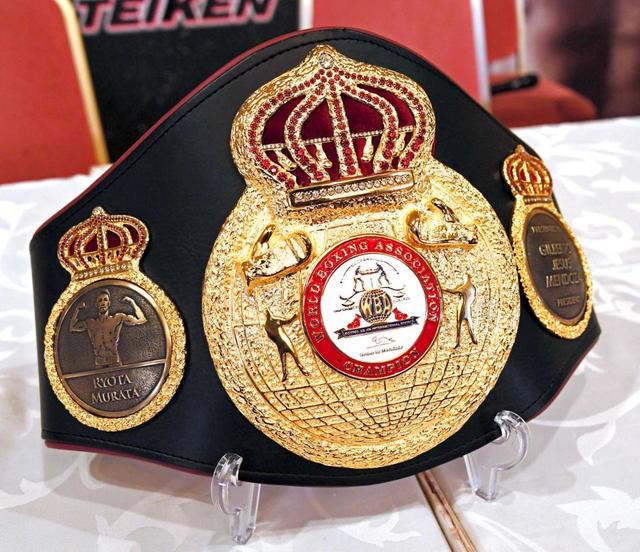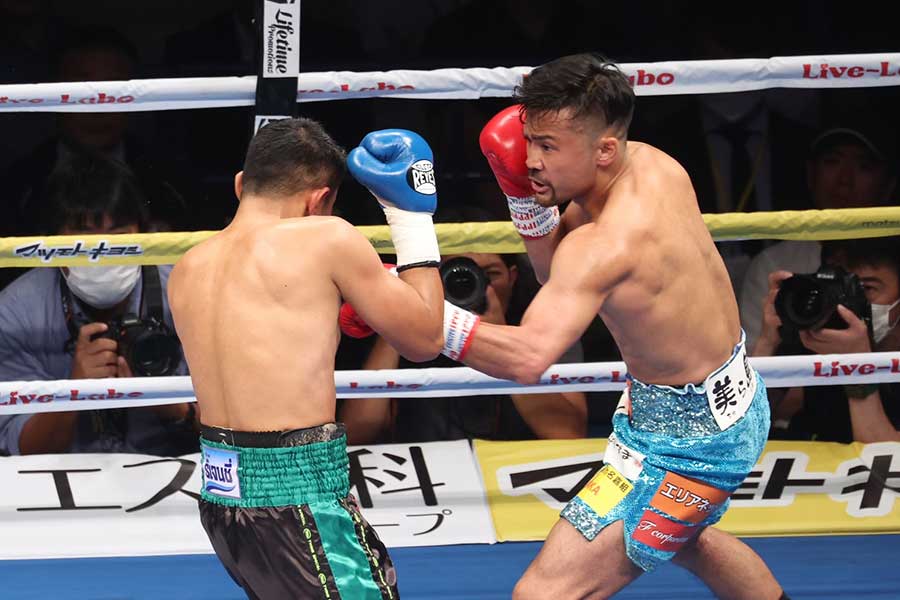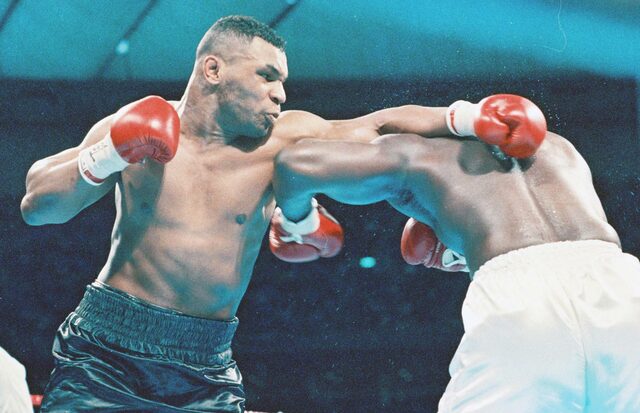
In the world of boxing, attention tends to be focused on the glory that shines as a winner as well as the abundance of fight money.
However, not every fighter who fights in the ring is a winner.
So, what kind of treatment will be given to the losing players? Many fans and new boxers have questions about fight money after losing a match.
In this article, we will delve into how boxing fight money is determined and how wins and losses affect fighters’ income.
A deep dive into the financial side of the sport, highlighting not only the winners but also the losers and debunking common misconceptions surrounding boxing’s fight money.
目次
Boxing fight money basic knowledge
Fight money in the boxing world plays a very important role as compensation for fighters.
However, the mechanism and decision-making process are not familiar to general fans, and many people may not understand how the amount is determined or how winning or losing affects them.
Here, we will explain in detail the basics of fight money and how the outcome of a fight affects a fighter’s income.
The process by which fight money is determined
The amount of fight money in boxing is primarily determined by the following factors:
- Size of the fight: The larger the venue and the more high-profile the fight, the higher the fight money. PPV (pay-per-view) sales and television rights fees also have a significant impact on fight money.
- Fighter Popularity and Track Record: A fighter’s individual popularity, past track record, and number of spectators they attract will also affect fight money. Popular or established fighters are in a position to negotiate higher fight money.
- Negotiations with Promoters: Fight money is ultimately determined by negotiations between the fighter or his/her representative and the promoter. Choosing the right agent is also important, as bargaining power has a direct impact on fight money.
Impact of match win/loss on fight money
The impact of a win or loss on fight money depends on the contract signed before the fight. In general, the effects are as follows:
- Victory Bonus: Winners are often paid a victory bonus in addition to their base fight money. This bonus will be determined at the time of contracting the match.
- Loser’s fight money: Losers are also paid fight money, but the amount is usually less compared to the winner. However, even losers can earn a large amount of fight money if they are popular or have a promising future.
- Affects future fights: Wins and losses affect a fighter’s market value and therefore future fight money. A winning streak or big wins will allow you to negotiate higher fight money.
Fight money in boxing means more than just compensation to fighters for fighting. It is also an indicator of a fighter’s career, popularity, and contribution to the sport, and reflects the health and growth of the boxing industry as a whole.
The result of a match has a significant impact on future fight money, and is directly linked not only to the fighter’s own market value but also to the popularity of the sport of boxing.
- Reputation and popularity: By winning, players can gain more fans and increase their brand value. This will have a positive effect on sponsorship and advertising contracts, and will also lead to increased sources of income other than fight money.
- Possibility of a rematch: Especially in close or high-profile matches, even the loser may be offered a rematch. This means that even losers have a chance to win back the big fight money if they show a certain performance.
- Long-term career outlook: Short-term wins and losses are important, but maintaining consistent performance over a long career will ultimately lead to more fight money. A loss does not immediately mean the end of a player’s career, and the path to recovery is open to many players.
Summary of boxing fight money basic knowledge
Boxing fight money varies greatly depending on the fighter’s skill, popularity, and bargaining power with the promoter.
Winning or losing a match is a very important factor for a boxer, as it not only directly affects the fight money at that moment, but also the fighter’s future market value and income potential.
However, one defeat does not decide everything, and it is possible to seize new opportunities through comebacks and rematches.
In boxing, both winners and losers are respected and each has a variety of paths to build a career.

What happens to my fight money if I lose?
In the world of boxing, it is common for fight money to be paid not only to the winner but also to the loser.
However, the amount and terms greatly depend on the contract for each match.
Here, let’s delve into the reality of fight money paid to losing fighters and how fight contracts are related to fight money.
The reality of fight money paid even to losing fighters
Generally, fight money is paid to both the winner and loser in a boxing match.
This fight money is negotiated between the fighter, agent, promoter, and in some cases broadcast rights holder before the fight, and is determined by contract.
- Guaranteed Fight Money: Fighters often receive a guaranteed minimum amount of fight money for participating in a fight. This amount is paid regardless of win or loss and represents the minimum amount that a player can receive.
- Victory Bonuses: Additional bonuses may be paid to winning players. This is in addition to guaranteed fight money and varies by contract.
The relationship between fight contracts and fight money
The amount of fight money is determined in advance by the fight contract.
This contract process is highly dependent on the negotiating power between the fighter and the promoter, and is influenced by factors such as the fighter’s popularity, past performance, and the visibility of the fight.
- Contract details: In addition to the amount of guaranteed fight money, the contract sets out various terms, including win bonuses, a share of PPV sales, and revenue sharing from television rights.
- Treatment of losers: Even losers may receive additional compensation depending on their contract and match performance and attention. It can also be an achievement for even the loser to negotiate better terms in future matches.

Comparison of fight money between winners and losers
Fight money for winners and losers in boxing matches can vary widely based on their contracts.
These differences can be very noticeable, especially in large matches.
Here’s a closer look at examples of fight money distribution in big fights and the potential financial consequences for the loser.
Example of fight money distribution in big fights
For big fights, especially title fights and big events that attract worldwide attention, the total amount of fight money can be very high.
In these matches, the winner is often paid a large bonus or a percentage of pay-per-view (PPV) sales in addition to guaranteed fight money.
- Fight Money for Winners: Winners are often paid a win bonus or a share of PPV sales in addition to their basic fight money, which can significantly increase their income.
- Loser’s Fight Money: Losers also receive the basic fight money, but are not expected to receive as much additional income as the winner. However, in big matches, even the loser can earn a significant amount of fight money.
Economic impact if you lose
The financial consequences faced by losing fighters go beyond the loss of fight money and impact future income opportunities.
- Fluctuations in Market Value: Defeats can lower a fighter’s market value, which can put them at a disadvantage in fight money negotiations for their next fight. The terms of sponsorship agreements may also deteriorate.
- Diversifying income sources: To reduce the financial risk of winning or losing, many players diversify their income sources. This includes sponsorships, media appearances, and selling your own branded merchandise.
- Importance of return match: For defeated players, performance in the next match is especially important. A victory in the return match would be a great opportunity to regain fan support and rebuild market value.

Misconceptions and facts surrounding boxing fight money
There are many misconceptions when it comes to boxing fight money. These misconceptions can sometimes give the wrong impression to fans and prospective boxers.
Here are some common misconceptions and their corrections, as well as some interesting facts about Fight Money.
Common misconceptions and their corrections
Myth 1: Winner takes all the fight money
- Fact: Most boxing matches pay fight money to both the winner and loser. Although the winner often receives the larger amount, the loser also receives the amount guaranteed under the contract.
Myth 2: Fight money is always public.
- Fact: The exact amount of fight money is often kept private. Published numbers may also not fully reflect actual revenue (PPV sales share, sponsorship revenue, etc.).
Myth 3: All professional boxers earn huge amounts of fight money.
- Fact: Top fighters in high-profile fights do earn a lot of money, but many professional boxers continue to compete for modest pay. Especially early in your career, it can be difficult to earn enough to make a living.
Interesting facts about fight money
-
Most of the fight money is concentrated in the top fighters: Boxing industry income is very top-heavy, with top fighters making up the majority of the industry’s overall fight money.
-
Income sources other than fight money are also important: In addition to fight money, top fighters earn income from sponsorship deals, media appearances, and sales of their own branded products.
-
Fight money is greatly affected by negotiation: The negotiation skills of the fighter and his/her agent have a significant impact on fight money. If you can negotiate well, it is possible to get favorable not only fight money but also other terms of the contract.

Advice to increase your future fight money
In boxing, increasing fight money is an important goal for many fighters.
Whether you’re a loser or early in your career, it’s possible to increase your future fight money by growing your fan base and using smart marketing and promotional strategies.
Here’s some specific advice to help you do just that.
How to increase fans and increase fight money even if you are a loser
-
Have an attractive way to fight: Winning is important, but how you fight is important. By fighting in an aggressive and exciting way, you can gain the attention and support of your fans even if you lose.
-
Create a story: Deepen your connection with your fans by sharing your own story and background. By exposing personal challenges, successes, and failures, fans become emotionally invested in players.
-
Leverage social media: Social media is a powerful tool for communicating directly with your fans. You can grow your fan base by updating regularly and building relationships through interaction with your fans.
Importance of promotion and marketing
-
Work with a professional promotion team: Effective promotion and marketing strategies require specialized knowledge, so it’s important to work with an experienced promoter and marketing team.
-
Be conscious of your branding: Establishing yourself as a brand can help you attract sponsorship and media attention. Increase your marketability through consistent image and messaging.
-
Build relationships with the media: By proactively approaching the media and increasing your opportunities for interviews and features, you can introduce yourself to a wider audience. Positive media exposure directly leads to a larger fan base and more fight money.

summary
Increasing fight money is not just about in-ring performance, but marketing and promotional strategies.
Even losers can create opportunities to increase future fight money by increasing their fan base and increasing their brand value.
The path to success is not a straight line, so it’s important to learn from your mistakes and constantly market yourself.




